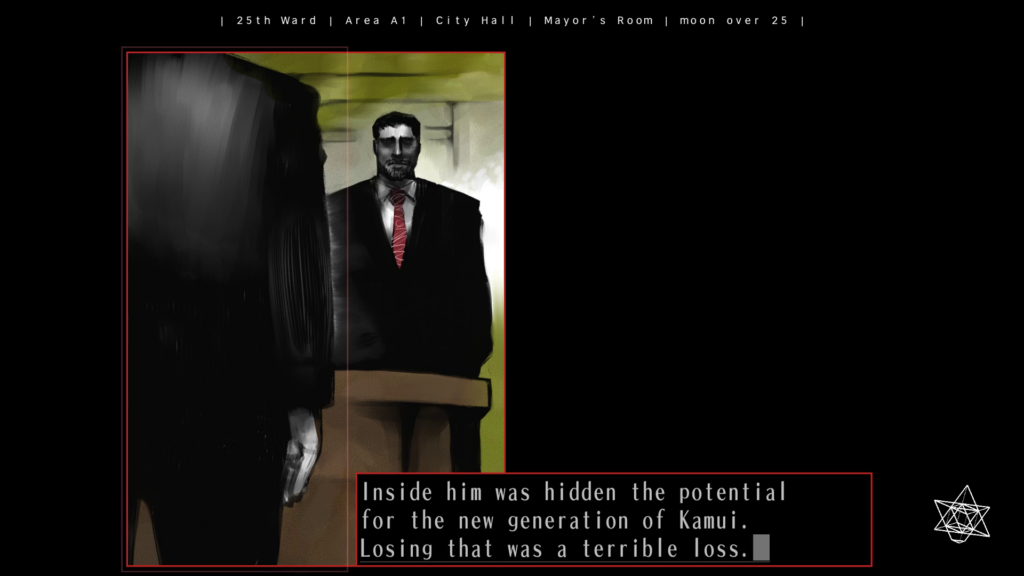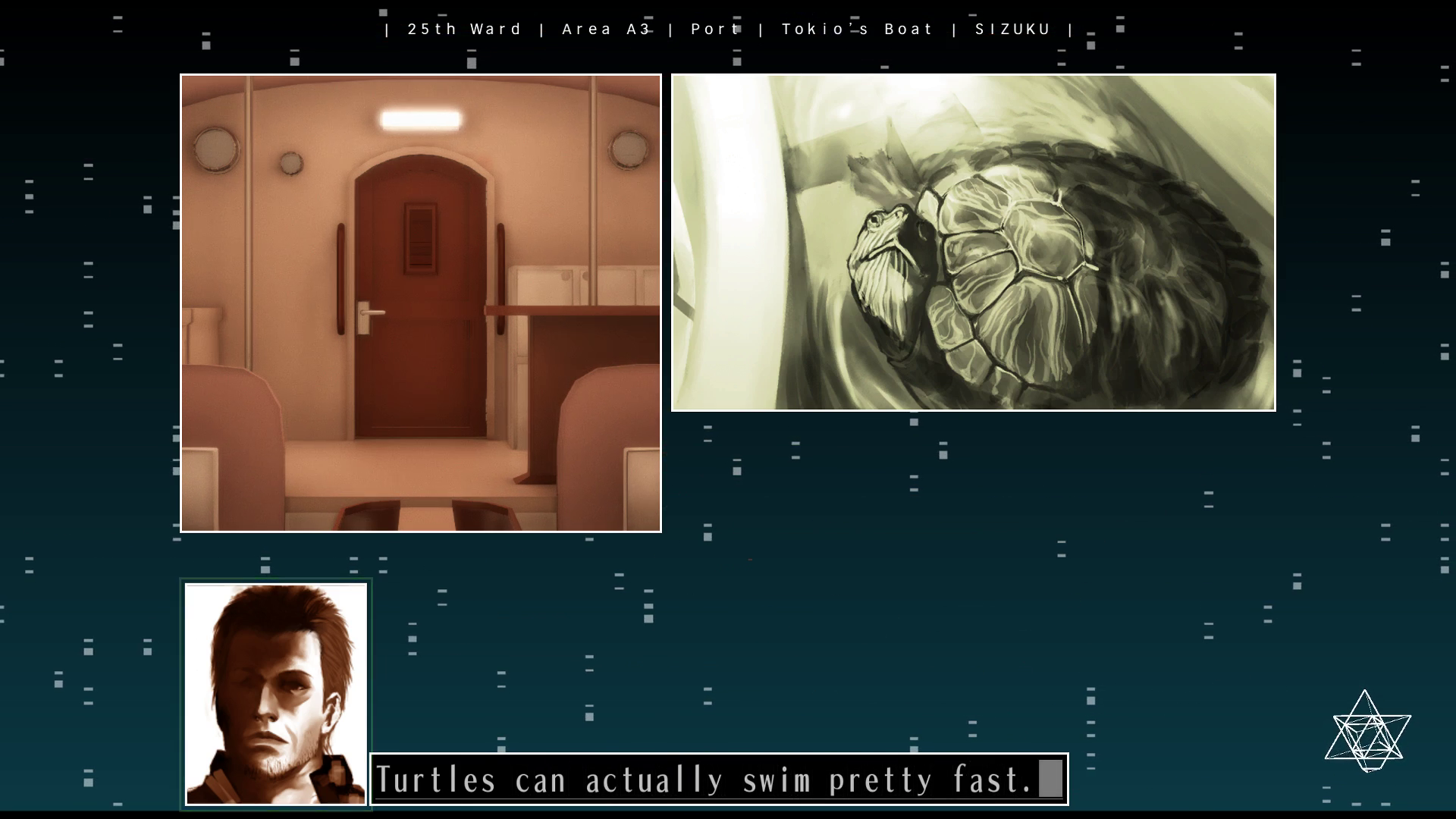***

Osato Yotaro, deuteragonist of Matchmaker, is obliquely linked to Kamui. He is also more likely than Tsuki Shinkai to be the other Kamui whom Shimohira mentions in “MISOGI,” though in that case it seems that the subsequent image should not show Tsuki but Osato (or, for that matter, the obvious other Kamui, Uehara, who also serves another faction than Shiroyabu).
Being the son of Sundance Shot, Osato comes to the sinister Mayor Mikoshiba’s attention as possessing a great deal of criminal power, yet again turning back on the previous title’s message by making criminality an inborn trait. As revealed at the end of “moon over 25,” the TRO/CCO or Postal Federation arranges the series of violent, traumatic incidents that occur over the course of the storyline as an experiment to study Osato and extract his criminal power. Their aim is use Osato as a template personality to replace Kamui/Ayame in the next Maspro to give them an edge over the FSO. In this way, Osato has some Kamui commonalities. In “the lunar orbit,” he even endorses killing the past: “The past… Let’s hurry up and kill it off!” (The phrase seems to be losing some of its meaning.)

Unlike the fifth Kamui, Osato is also no innocent civilian whom the old men murder. Well before his “awakening” as an animalistic silver-eyed killer at the end of “the lunar orbit,” Osato kills people in cold blood as casually as the rest of the Readjustment Bureau agents. Instead of living as an artist or political terrorist, he is, like Format Kamui, an unquestioning assassin executing civilians on behalf of the state, often for shockingly trivial offenses. He never shows the slightest doubt about his job. However, though he is a killer, Osato’s quirkiness, effeminacy, and affection for Tsuki endear him to the player. The focus on a semi-romance—or outright romance—between him and Tsuki makes the Postal Federation’s betrayal all the more tragic. The story is ambiguous on whether Osato survives Shigino’s torture.
Osato’s possession of these Kamui-like abilities again proves restrictive. Not liberating him or putting him in a role where he can liberate others, they cause him to lose his compassion, waste his life, and probably perish in agony at the expense of his friends. His death does not even have the liberatory potential to ruin the TRO/CCO plot by precluding another Maspro: Mikoshiba assures Tsuki that they have already found another person to serve as a template for the next child torture factory.
***

In The Silver Case, Morishima Tokio discovering he is Kamui is liberatory, an act of killing the past, of confronting the “facts,” necessary to climb out of Jack Hammer and into the light of 2000. In The 25th Ward, being Kamui is chiefly, as Tokio tells Sumio and Catherine in Flower, Sun, and Rain, a “curse.” Rejecting killing the past, Tokio enters a contract with Meru to erase his memories of being Kamui. This does not save him from Kipple, an agent of an unspecified organization who abducts and manipulates him to steal data from the 25th Ward. IMM Hospital staff specify that Tokio no longer has the potential to become the kind of Kamui who kills people but is an entirely different phenomenon. However, he is still identified a type of Kamui, operating in the spiritual realm instead of in assassinations.